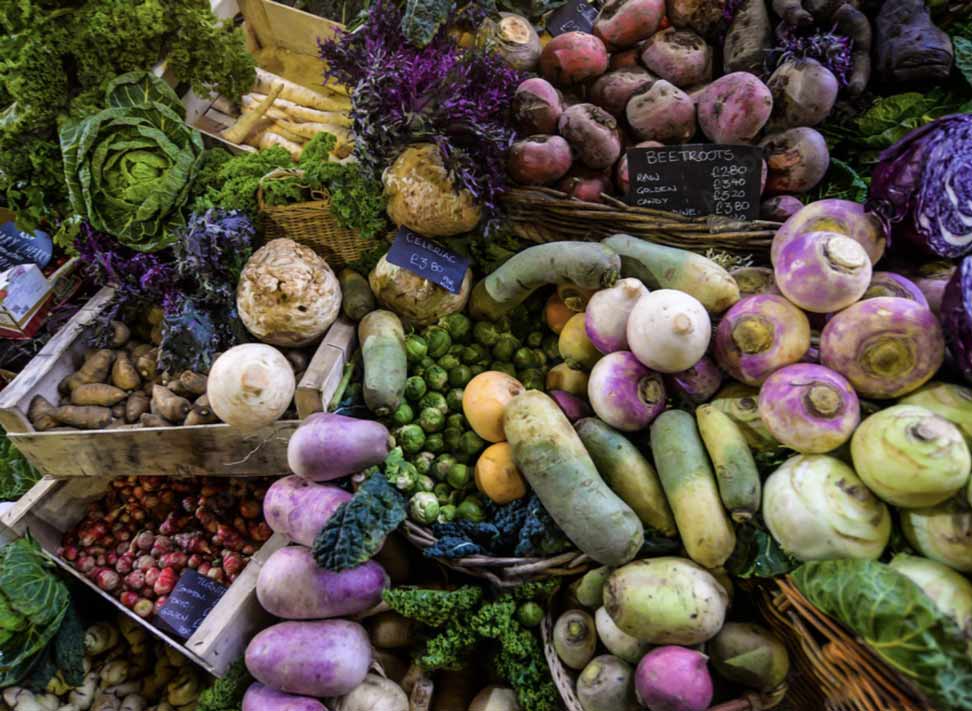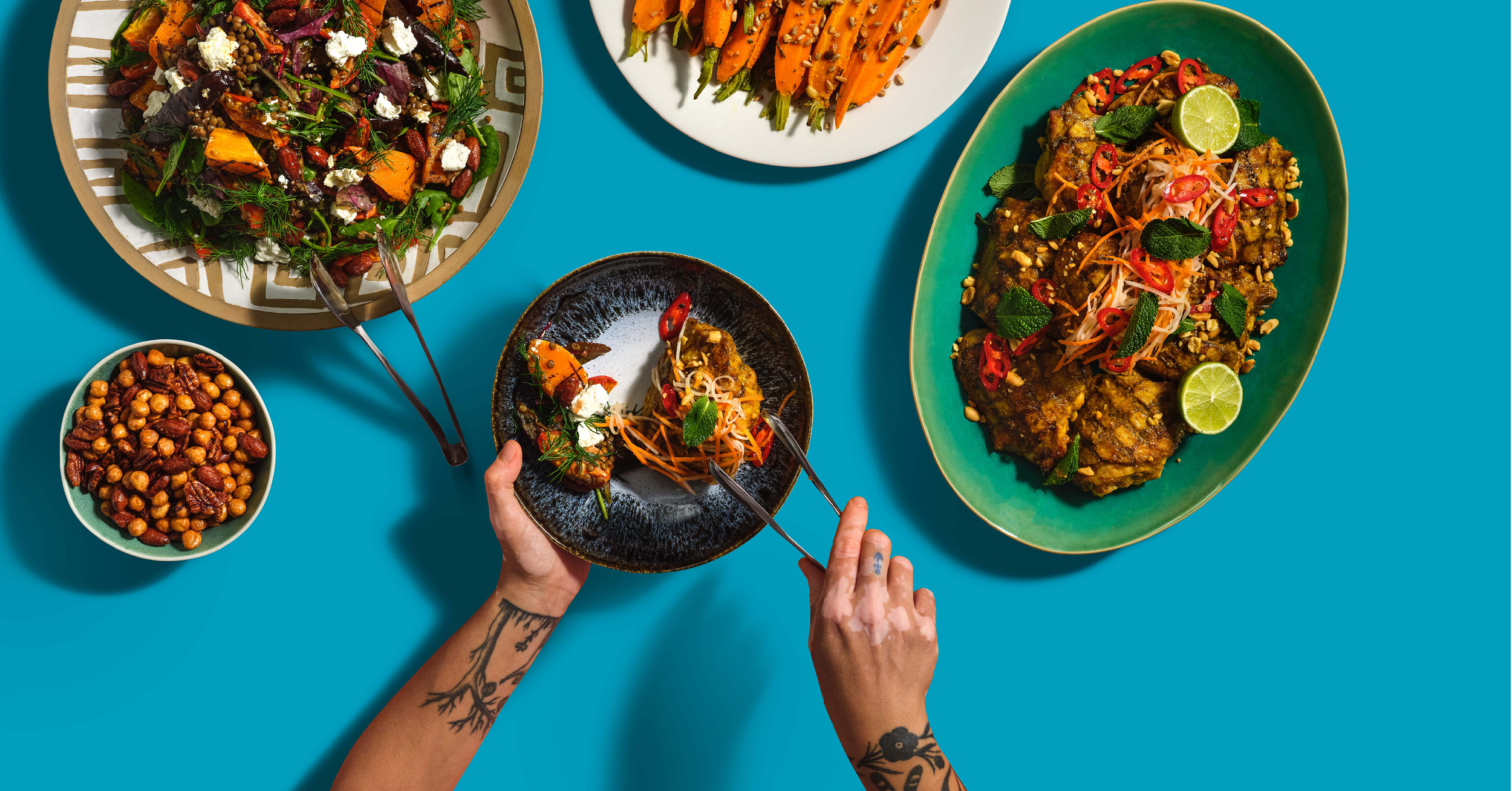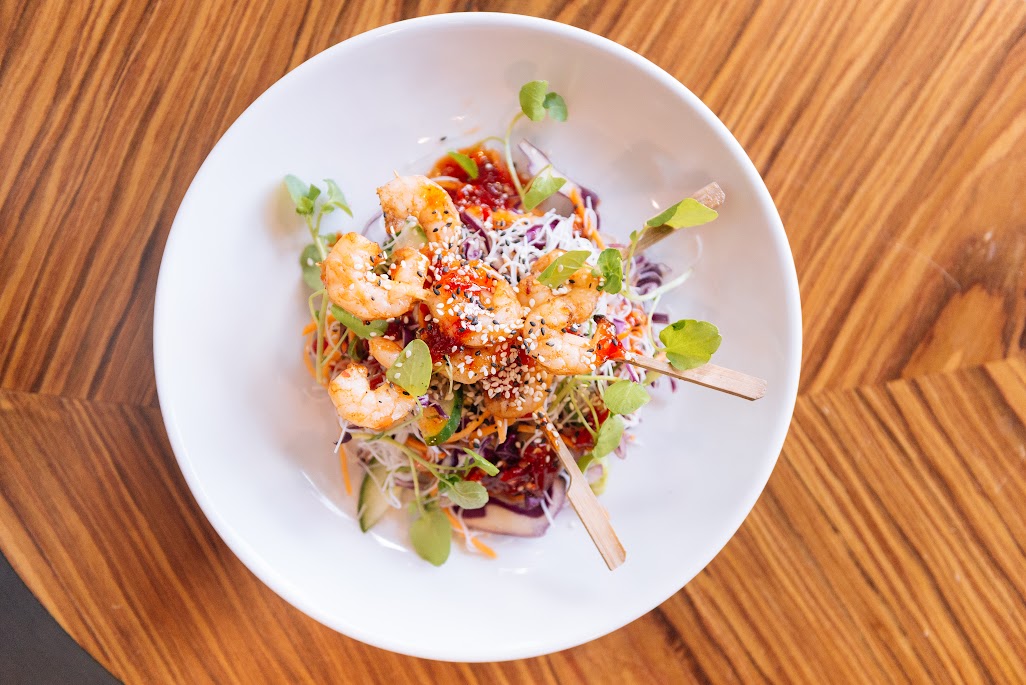What is Sustainability?
Sustainability is now a matter of urgency, no longer a ‘nice-to-have’. In the words of Sir David Attenborough, “It’s a crucial moment in our history. This could be a year for positive change, for ourselves, for our planet and for the wonderful creatures with which we share it. A year the world could remember proudly and say, ‘we made a difference’.”
What exactly does sustainability mean? The 1987 Bruntland Commission Report described the concept of sustainable development as “development that meets the needs of the present without compromising the ability of future generations to meet their own needs”.
Sustainability is more than just a buzzword. It’s balancing our societal and economic priorities with environmental ones to achieve a better quality of life for all (including the polar bears). If we want to avoid an acceleration of human and ecological disasters, businesses need to prioritise people and the planet above short term financial gain.
And let’s not forget that sustainability includes maintaining people’s health, wellbeing, and happiness.
What Does Sustainable Catering Entail?
A sustainable caterer adopts business practices that leave a positive impact on the environment and society. Therefore they consider sustainability in every stage of the business, from sourcing ingredients to serving food.
They’re also not afraid to roll up their sleeves to benefit their local community, whether it’s working with local food banks, offering their services pro bono for community groups or offering work placement opportunities to those that need it.
Sustainable caterers understand how clients and staff well-being connects with reducing carbon emissions, plastic pollution, food waste and ethical sourcing. Let’s take a closer look at the four elements of sustainable catering:
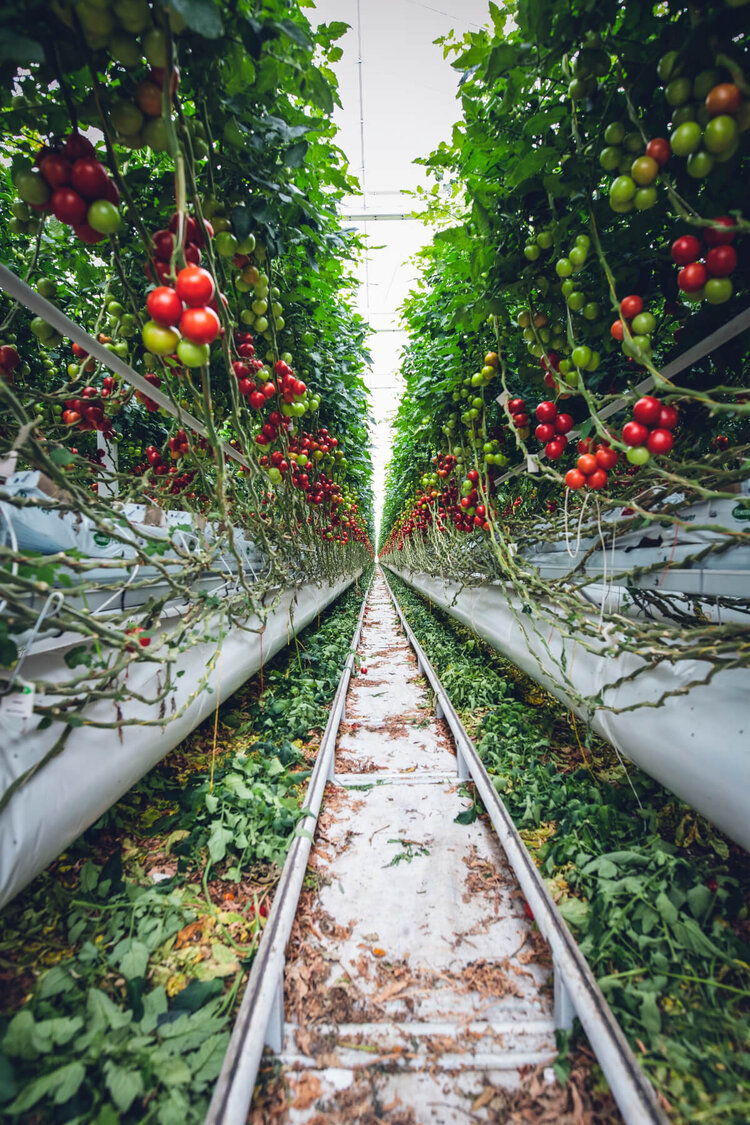
The Food
The world’s food system is broken, and caterers need to step up to the plate to help fix it. The National Food Strategy emphasises just how problematic it is,
“The food system – agriculture, food production, distribution and retail combined – releases more greenhouse gases than any other sector apart from energy. It is responsible for 25–30% of global emissions: a tally that dwarfs, say, the 3.5% contributed by air travel.”
One way caters can be more mindful is by choosing ingredients grown with care, this means; high welfare standards, avoiding industrially farmed food, paying the right price to farmers and choosing food that’s caused minimal depletion of natural resources and damage to the environment.
Keeping menus seasonal is a must for any sustainable caterer. Seasonal ingredients grow naturally to the time of year, therefore requires less intensive practices to farm it. Just think about the extra carbon footprint from artificial lighting, heating and refrigerated storage to provide strawberries in December – Ouch! Plus, seasonal ingredients just taste better.
Menus should be locally sourced wherever possible. Not only does this mean fresher ingredients, but it also means drastically reducing food miles. Afterall, why have your asparagus flown in from another continent, when it’s growing on a farm only a few miles away?
Food made with care also has the power to keep people energised, happy and healthy. A caterer should sustain their client’s nutritional balance and inspire good eating habits, such as healthy snack alternatives. Unfortunately, catering and hospitality is failing public health. Susan Bagwell from London Metropolitan University comments,
“The unhealthy nature of much of the food eaten outside the home has been identified as one of a number of key aspects of our modern-day lifestyle that is contributing to rising levels of obesity (Foresight 2007)”.
Making food healthier often goes hand in hand with sustainable eating. Take the consumption of meat, for example. Public Health England advises that adults should consume no more than 70g of red or processed meat per day, which only adds up to around one and a half sausages— not forgetting that 14.5% of total man-made C02 emissions are from the meat and dairy industries. So if caterers can encourage consumers to reduce their meat consumption, it’ll be a win/win for the consumer’s health and the planet’s too.
After all, sustainability is all about protecting wellbeing. The UN defines a sustainable diet as being “nutritionally adequate, safe and healthy while optimizing natural and human resources.” A healthy diet is more likely than not, more sustainable too, following the old expression, what’s good for the goose is good for the gander.
Serving and Packaging
Single-use plastics are cheap, hygienic and secure, but come with a hefty price tag for the worlds oceans and environment. It might look tempting cutting costs, but a sustainable caterer will find less damaging alternatives for the environment. One UK government report emphasised that,
“8.3 billion tonnes of plastic have been produced globally since the 1950s. Without urgent action to cut demand, this is likely to be 34 billion tonnes by 2050, the majority of which will end up in landfill or polluting the world’s continents and oceans.”
Workplace caterers can create added value to workplace culture by encouraging employees to eat at the lunch table with ceramic plates and metal cutlery. Away from their desks, employees return from their lunch break energised and more productive.
Not only does this create happier employees, but it also goes hand-in-hand with keeping operations sustainable. Quality sit-down meal times means no plastic cups, cutlery, single-use water bottles, takeaway packaging and plastic sachets. Better mealtime vibes all around!
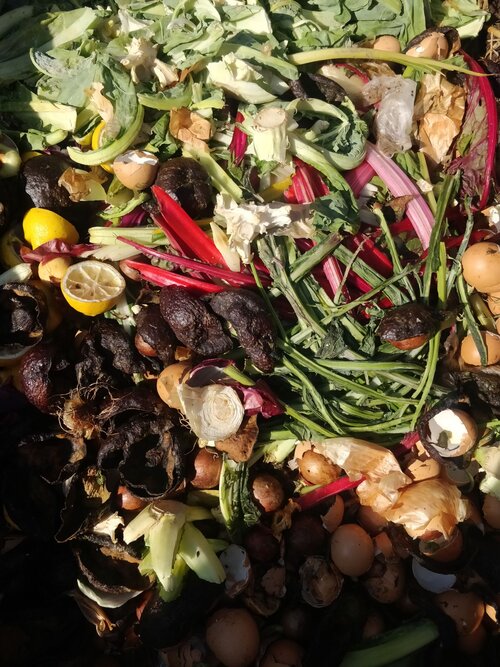
Minimising Leftovers and Waste
Nothing destroys the mood for a sustainable caterer than seeing edible food end up in the landfill. Unfortunately, food waste is a massive issue throughout the whole foodservice industry. WRAP, a charity for resource efficiency, comments:
“Redistributing surplus food is one way that businesses can reduce the amount of food that ends up as waste. This not only prevents the waste of money and resources that go into the production of the food but ensures that more food is available for people to eat.”
There are several strategies a sustainable caterer can put in place to combat food waste. For example, caterers can donate leftover food to charities, such as Olio and Foodcycle, or encourage clients and staff to take portions home.
Careful consideration of headcount to calculate food quantity can work wonders for improving food waste efficiency. But perhaps one of the effective ways is to be surrounded by an engaged catering team, both in the kitchen and front-of-house, who are proactive about reducing waste.
Ethical Sourcing
Food sourced at the expense of other’s welfare always leaves a bitter aftertaste. Now more than ever, Consumers are hypersensitive to the source of their food. Anna, head of commercial partnerships at The Fairtrade Foundation, emphasises that,
“There is a higher awareness than ever of the impact of climate change, and of the challenges workers and farmers have faced,”
Sustainable caterers need to take a hard look at their supply chains. They should not be afraid to ask their suppliers difficult questions about their sustainability and treatment of workers. A caterer shouldn’t be afraid to use their purchasing power to take a stand against modern slavery and support fair wages, along with fair trade and direct trade.
Another way that caterers can ensure that their suppliers are responsible is by looking at their accreditations. Some good examples include The Planet Mark, Guardians of Grub, Fairtrade Foundation and the London Healthy Workplace Award.
The Benefits of Sustainable Catering
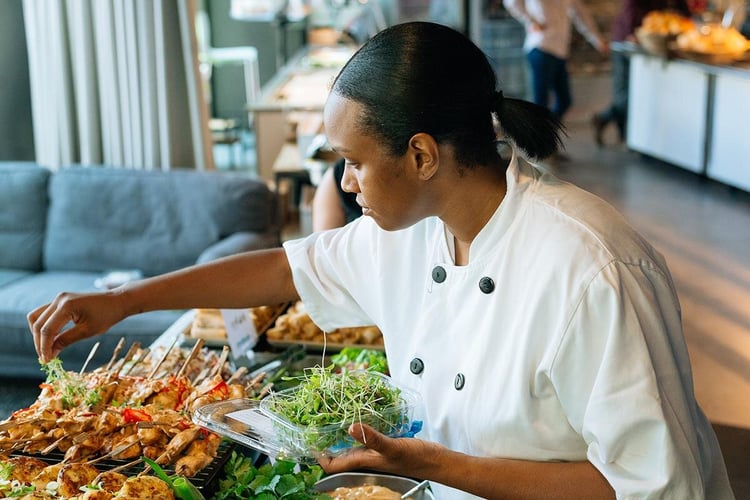
Our world’s environment can no longer suffer businesses that act irresponsibly towards it, which counts for caterers too. The depressing realities of climate change are laid bare on the news, in documentaries like Blue Planet II and through environmental activism ranging from Greta Thunbery to Extinction Rebellion.
However, consumers also HATE companies that exaggerate or fake their sustainable practice, also known as ‘greenwashing’. One study by Shift Insight uncovered that greenwashing would significantly damage customer relationships, with “48% of our sample saying they would purchase from the company as little as possible”.
Responsibly choosing a sustainable caterer is perhaps the only choice if the client values their CSR (corporate social responsibility) and relationship with the consumer. But there is also a much more positive side to choosing sustainable caterers: they are more likely to serve healthier and tastier food.
“Why’s that?” you ask? Well, sustainable companies (including caterers) attract and motivate the best talent. Future Learn comments, “A green mindset to business motivates employees as they feel more considered and respected.” Additionally, sustainably sourced ingredients in-season, organic and locally sourced are far more likely to be fresher tasting and of better quality.
Conclusion
Dr Maria Neira, Director of Environment, Climate Change and Health at the World Health Organization, comments:
“The world has gathered around one goal: the race to zero deaths from COVID-19. A healthy recovery from this pandemic means we need to continue and expand this race to zero deaths from climate change and environmental pollution, a race to zero people pushed into poverty because of health costs, to zero people breathing polluted air.”
The race to take action against climate change has started. But, unfortunately, caterers that haven’t already begun drastically improving their service’s sustainability for people and the planet have already missed the boat.
Sustainable catering is the ONLY viable option in 2021. Your consumer (and the planet) deserves nothing less.
Thanks for reading! At Fooditude, we believe it’s best to be upfront about our sustainable practice. If you’d like to find out about it, visit our sustainability page.
